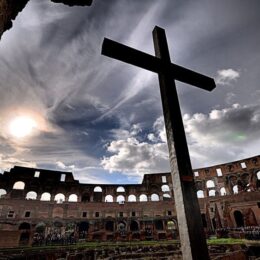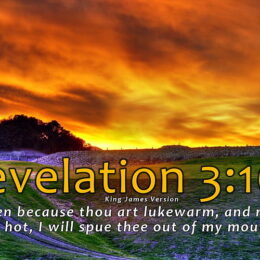9/21/2010 – Fr. Patrick Reardon –
Our country appears to be, at this moment, on the verge of a very big political upheaval. One has the sense of hearing a distant trumpet. We will know more, surely, after the fall elections.
Even now, nonetheless, one would be deaf not to detect a growing dissatisfaction—louder each day—with the “progressive movement” that controls much of our culture, including education, social services, entertainment, politics, publishing, and religion. Especially controversial is the nation’s recent reorganization of health care, widely regarded as a significant step in the direction of socialism.
To be sure, a favorable disposition toward socialism is hardly new in this country. Even without a clear political expression of it, an underlying sympathy for social equality has always been—as John Stuart Mill remarked in 1869—“a probable result of democratic feeling, combined with the notion that the public has the right to a veto on the manner in which individuals spend their incomes.”
Admitting that reports of this tendency in America were “doubtless much exaggerated,” Mill feared, nonetheless, that a further “diffusion of Socialist opinion” would, in due course, weaken America’s commitment to personal liberty and individual achievement.
Well, maybe, but perhaps not. At the very moment Mill expressed his apprehension on the subject, America’s “democratic feeling” was in the process of ratifying the Constitution’s Fifteenth Amendment, which prohibited the denial or abridgment of suffrage “on account of race, color, or previous condition of servitude.”
Sympathies & Wisdom
Meanwhile, today, debate continues about America’s social and political future. Even as we hope Christians are active in this discussion—bringing to it the truth and charity of the faith once delivered to the saints—we are not so deluded as to imagine that the light of the gospel will invariably yield clear, immediate, specific, and compelling answers to every social, economic, and political question America currently faces.
For example—and salva reverentia to some of our hierarchical leaders—it is not obvious that the gospel injunction to visit the sick will necessarily compel Christians to feel enthusiasm for the nation’s new health care policies. Economic and political wisdom—and not simply proof texts—are needed to discern how best to care for the sick, to meet the needs of the unemployed, to safeguard the economy, to regulate immigration, to protect and educate children, and so on.
We should not expect all Christians to agree among themselves on the specifics of such matters. For this reason, itemized Christian solutions to complex social problems are preferably advanced with modesty and circumspection.
There are exceptions to this preference, nonetheless: Neither modesty nor circumspection is appropriate when a controversy involves the structure of Creation (such as the definition of marriage) or actions intrinsically sinful (such as the murder of the innocent). Cases like these call for bold address in clear prophetic tones.
Although the gospel does not always yield specific answers to individual social and political questions, we entertain the hope that its influence will widen the sympathies and make wise the souls of those who live by it. This hope, too, is modest. It is not a utopian dream but the reasonable expectation of gaining—by God’s grace—a somewhat better world.
We also believe that enhanced liberty will be the mark of such a world. With Lord Acton we are persuaded “that the action of Christ who is risen on mankind whom he redeemed fails not, but increases, that the wisdom of divine rule appears not in the perfection but the improvement of the world, and that achieved liberty is the one ethical result that rests on the converging and combined conditions of advancing civilization.”
HT: Touchstone



